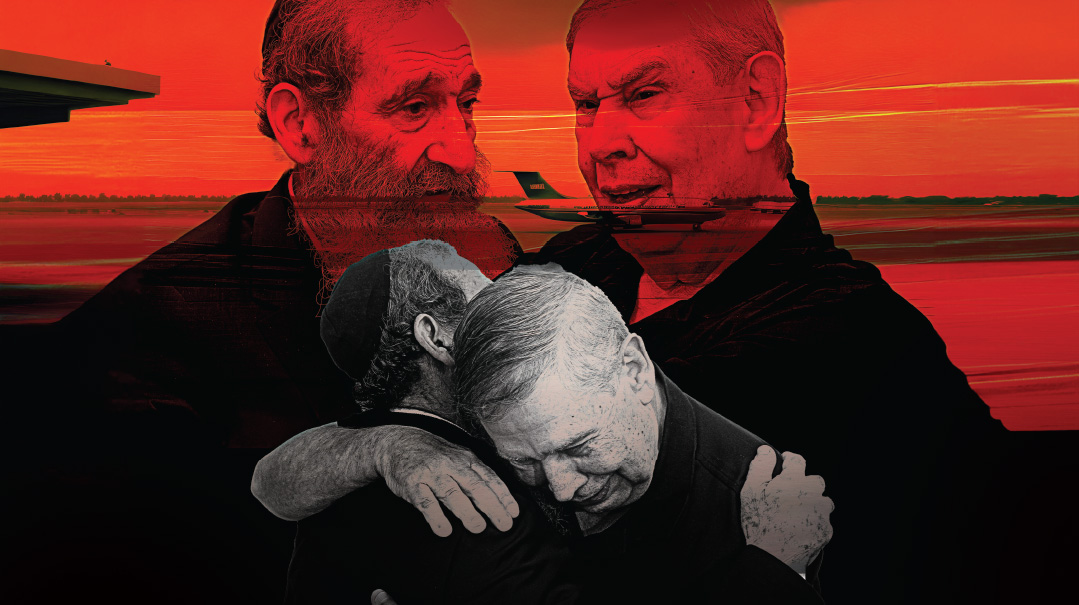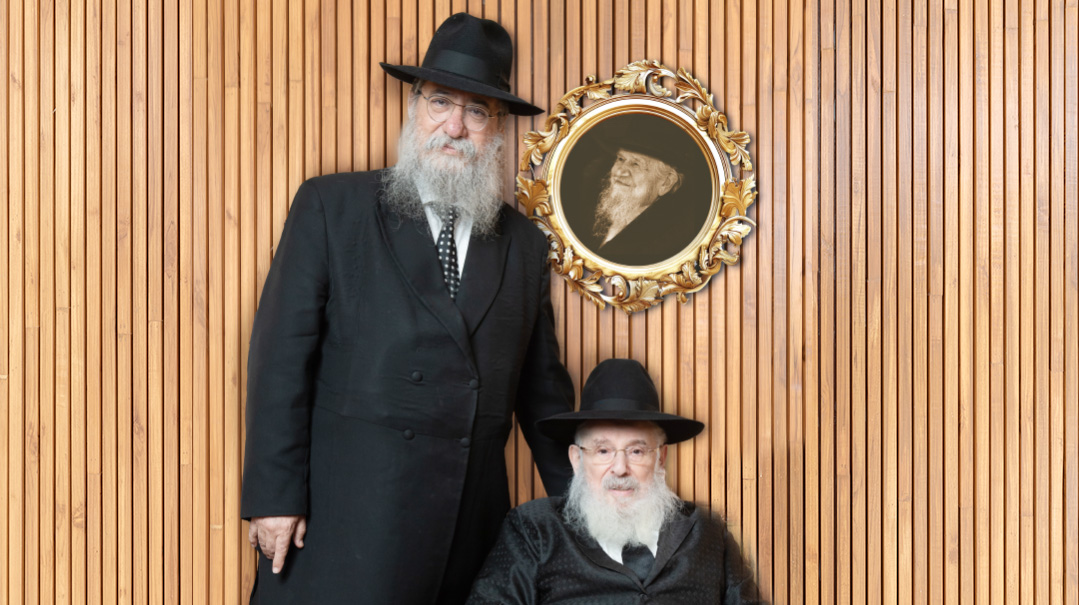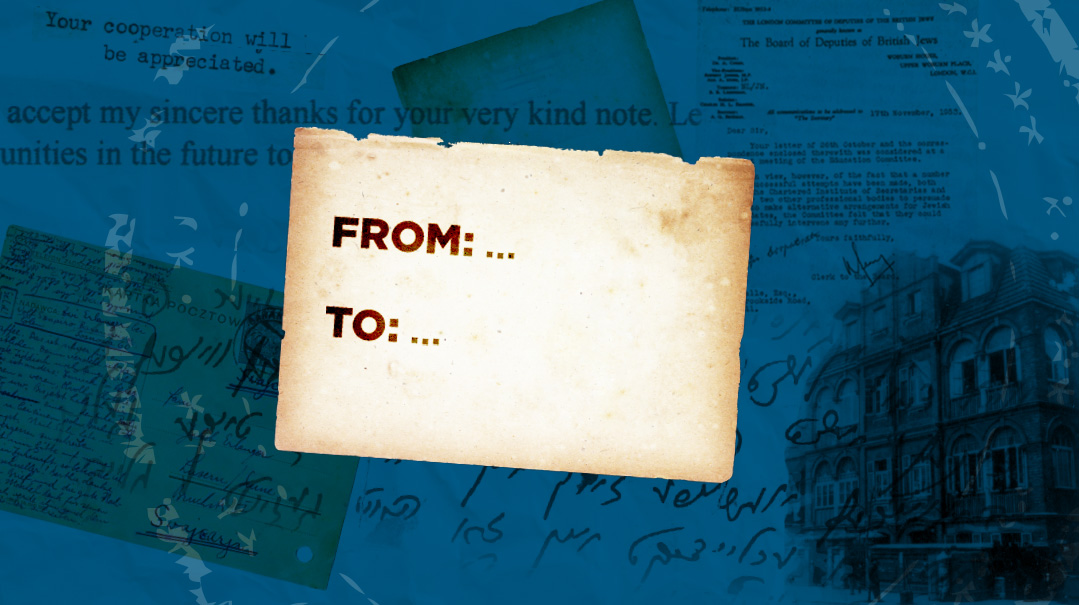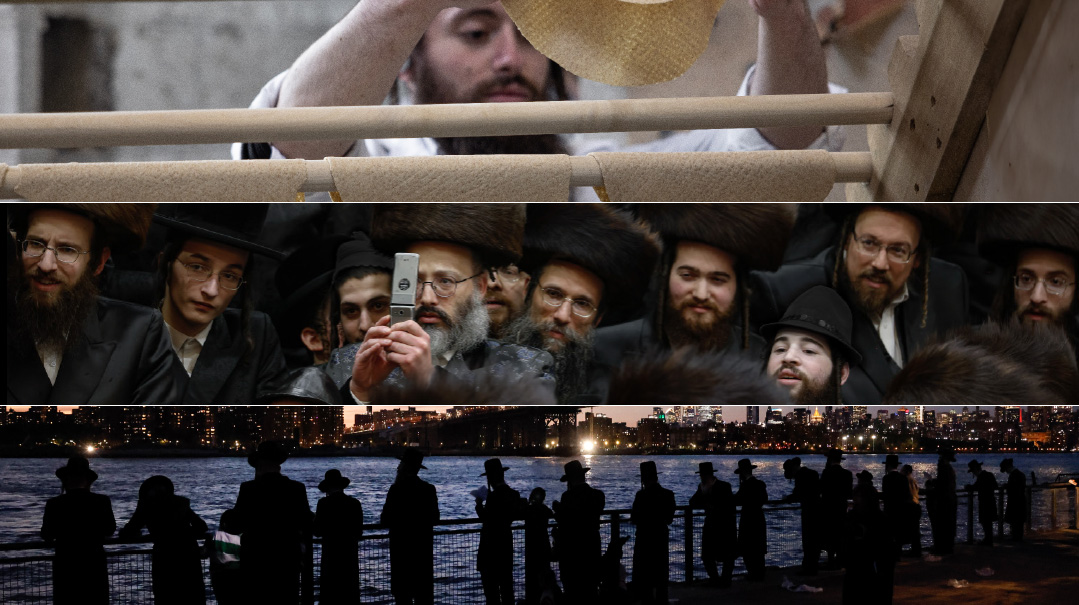The Michael Behind the Mike


CHANGEOVER Michael Medved today talk radio’s most convincing conservative spent most of his twenties involved in political campaigns on behalf of left-wing candidates. Ironically the experience helped drive him in the opposite direction politically but change took time. “I refused to give up on thinking of myself as a liberal because I didn’t want to stop seeing myself as a good person” (Photos: Luci Varon)
"Thanks for sparing me the need to write my autobiography" I quip to national talk-radio host Michael Medved when we first meet at the Bonneville Radio Building in downtown Seattle on a drizzly day in late February.
I’ve been reading his autobiography Right Turns and find the parallels to my own life eerie. We both come from highly identified Jewish families of all boys all but one of whom became observant Jews. We both have followed a trajectory from left to right both religiously and politically. We even shared a favorite breed of dog: I grew up with two Norwegian Elkhounds and Michael’s first marital home also included two of the same breed.
Michael was voted “most radical” in his elite high school class; I (regrettably) got the dress code abolished in my suburban high school. Medved went on to become one of the leaders of the Vietnam Moratorium Day and to address 50 000 protestors on New Haven Green.
We started Yale Law School just a few years apart though his class included many more illustrious names including Bill and Hillary Clinton. He still remembers Hillary as “the warmest and most welcoming” of his classmates though he debunks the myth that she stood out as one of the most “brilliant minds” in the class. It was Hillary who gave him the necessary encouragement to drop out after his freshman year in law school to become the chief speechwriter for Senate candidate Joseph Duffey in the face of fierce maternal opposition.
John Kerry and George W. Bush were a few years ahead of him at Yale College which he entered at 16. He would not get to know the future president until decades later but Kerry was chairman of his party the Liberals in the Yale Political Union. Kerry wore cufflinks inscribed with the monogram “JFK ” and jabbed the air with his left hand when he spoke in imitation of the slain president. He even carefully coiffed his hair in the manner of the Kennedy brothers. Everyone knew that one day he would run for president.
Shortly after an audience with Kerry in which the future senator and secretary of state droned on about how his young followers in the Political Union could aspire to his eminence one day Michael and a fellow party whip ran through the quadrangle of their residential college one night shouting “We can’t turn out like John Kerry ” and dropped out of the Yale Political Union.
Studio Time
It will be almost four hours before I can really begin my interview with Medved who is also the author of 13 books and a columnist for USA Today. He is on air in only half an hour and is fully occupied reviewing the newspapers and news briefings he started reading at 5 a.m. and cutting out op-eds or news items he might use. I try to remain silent and unobtrusive — not the strongest part of my skill set.
At five minutes before noon I’m ushered into the studio from which The Michael Medved Show is broadcast Monday through Friday at 12 noon PST. Broadcast on the network of the conservative Salem Radio Network it reaches four million discrete listeners a week making it one of the most listened-to talk radio shows in the country. Opposite Medved is Jeremy Steiner who keeps everything running on time inserts the sound bites for the various news items that will be discussed and selects the music that leads in and out of breaks. He has already spent much of the morning going over the schedule and the topics with Michael.
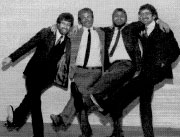
Michael Medved’s brothers Harry (his frequent co-author) Ben (a therapist and die-hard liberal) and Jonathan (an Israeli venture capitalist) celebrate Michael’s marriage to Diane
I’m seated at the semicircle counter with microphones and headphones to Michael’s right and behind me in a glass box is Greg Tomlin who screens the calls that give talk radio its sizzle and forwards a short one-line message that appears on a screen in front of Michael with a single-sentence synopsis of the caller’s name city and what he wants to speak about. “We always favor callers who disagree over the ‘Amen chorus ’ ” Medved tells me later.
Jeremy Steiner has been working with Michael ever since he first began broadcasting locally in Seattle in 1996. The rapport between the two is immediately evident. Each day Jeremy and Greg — who constitute the entire production team — provide Michael with their own lists of possible items and then they sit together to winnow them down.
Each show begins with an invocation of the United States as “the greatest nation on G-d’s green earth.” That phrase is repeated at the beginning of each segment and succinctly alludes to Michael’s fierce American patriotism Seattle’s lush greenery his ecological concerns and most important alerts listeners to Michael’s “willingness to discuss religious issues.”
Medved describes the experience of hosting a talk-radio show — the feeling of being intimately connected to a large audience — as “addictive.” In 2015 he had to take off 11 weeks from the show due to throat cancer. Literally tens of thousands of listeners of all faiths contacted him to say that they were praying for him. Those letters and e-mails “soothed my spirit ” he shares.
Conservative talk radio has a reputation as an angry medium in which many of the “stars” deliberately rile up the base. Medved adduces a wealth of statistics exploding some of the stereotypes of talk radio listeners as knuckle-dragging Neanderthals. In fact they are better educated earn more and are generally happier than the general population. And they tend to vote in much higher percentages.
Still Michael does not deny that some hosts deliberately try to stir anger to capture a fixed market share. He has however deliberately headed in the other direction and has styled his show as “Radio’s Foremost Forum for Substantive and Civilized Debate.” “One thing I have taken away from my Gemara learning ” he tells me “is the importance of preserving both sides of the debate.” (Excerpted from Mishpacha Issue 655)
Oops! We could not locate your form.

